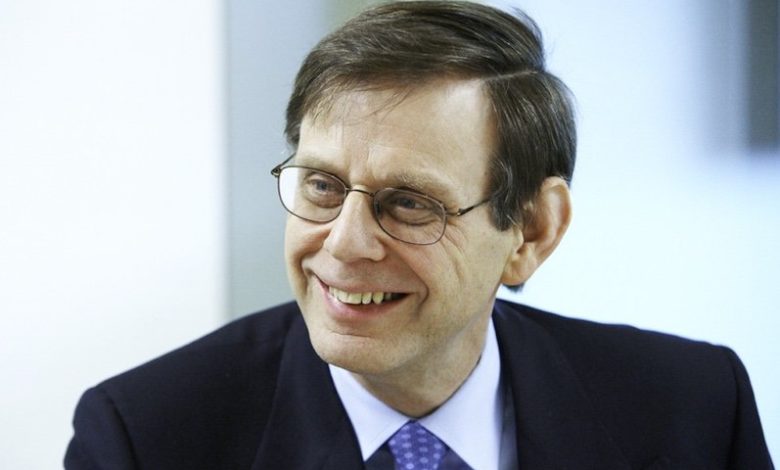Stopford’s worst-case scenario: sea trade declines 17% by 2024

SMM, the world’s largest shipping exhibition, held its regular press event curtain-raiser this week by Zoom with famous names in maritime dialling in to discuss the markets.
The Hamburg maritime showcase has switched dates from September to February next year because of Covid-19 but pressed ahead regardless with its normal May press gathering.
The maritime industry has been facing climate change, the digitalisation challenge, and now, the coronavirus crisis, attendees to the event were told. These changes are of “a similar scale as the move from sail to steam”, said Dr Martin Stopford, president of Clarkson Research.
It is important to remember that trade growth was already slowing before Covid-19 hit, he stressed.
“We are moving into an era where globalisation is no longer the issue. We will see more short-sea shipping and local manufacturing,” said Stopford. He anticipates three conceivable scenarios for shipping after the coronavirus. In the best of cases sea trade will pick up again in 2023, growing by 3.2% annually. The second scenario assumes a prolonged recession with world trade shrinking by 1% between 2020 and 2024, followed by renewed growth at a rate of 2.2%.
“In scenario 3 there is an extended recession with sea trade declining by 17% by 2024,” said Stopford in his most pessimistic forecast.
Given the scale of the likely downturn, state aid will be necessary to get maritime through the coming years, said Dirk Lehmann, managing director of Hamburg-based Becker Marine Systems. He called on governments to make far-reaching concessions and provide support.
“Shipyards and maritime suppliers are important pillars supporting the sea transport sector. These companies and their employees are suffering from the pandemic in especially severe ways,” Lehmann stressed. “They depend on the support of the political decision-makers. Providing this support is the only way a steady supply of goods and technical progress can be ensured in Europe.”
Also dialling in for the SMM event was Sadan Kaptanoglu, president of major shipowning organisation BIMCO, who used the platform this week to renew her calls for greener shipping, a goal the industry must pursue despite the crisis, she said.
“We still need to reach the 2050 reduction target for emissions, and one or two years of low revenues will not change that,” Kaptanoglu said.
Knut Ørbeck-Nielssen, CEO of class society DNV GL – Maritime, was also on hand for the event, who told the assembled press that the current pandemic had “turbocharged” shipping’s digitalisation drive.
“Within just a few months the pandemic has turbocharged the sector’s digitalisation journey, advancing it by half a decade,” Ørbeck-Nielssen claimed.
SMM has been rescheduled for February 2 to 5 next year.

With all crews collecting and spreading deadly viruses around the planet, they are at a festival in Hamburg speculating on cutting emissions by 2050 … real solidarity with seafarers or what??